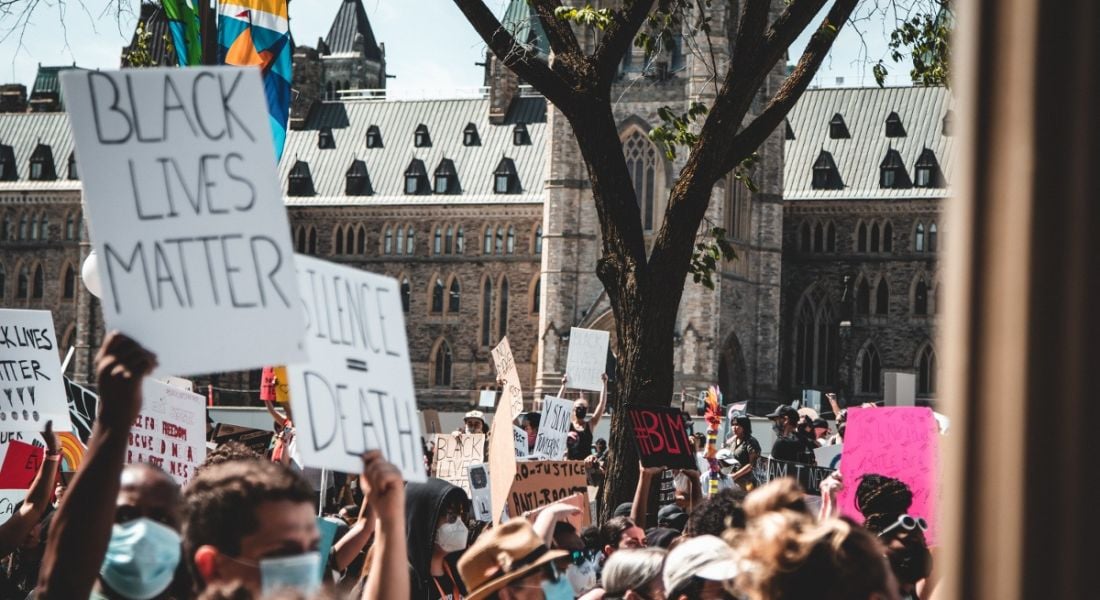In light of Black Lives Matter, Trans Lives Matter and other movements giving a voice to underrepresented groups, how do workplaces need to address diversity and inclusion differently?
For many of us, diversity and inclusion at work are not new concepts. This certainly isn’t the first piece you’ll read on the topic and, unfortunately, it won’t be the last. As long as our workplaces aren’t diverse, inclusive or equal enough, we will need to continue focusing on the issue. So, how is the future of diversity shaping up?
Actions are stronger than words, so it’s vital that companies don’t get caught up in performative gestures or outdated initiatives. In recent years, a common method of tackling diversity issues in the workplace has been implicit or unconscious bias training. But this may not be good enough.
I learned this recently when I spoke to NUI Galway psychologist Dr Chris Noone, who is also chair of the research committee for the National LGBT Federation, about its drawbacks. Training like this may be desirable to companies because it’s cheap and easy to implement, he said. But whether our biases are implicit or not, models that take away any sense of responsibility or agency are ultimately not helpful.
“Implicit bias training falls short because of its totally underwhelming aim,” Noone said. “Why are we just trying to reduce the extent to which people are, for example, unconsciously racist? Wouldn’t it be much better to teach people how to be consciously anti-racist?
“That should be the future of diversity and inclusion: people learning that they should challenge sexism, racism, homophobia, biphobia and transphobia, and giving them the skills to do so.”
We need to stop adopting the mindset that although something isn’t quite good enough, we must keep using it because it’s all we have. That might be OK when you’re risking a new ingredient in a recipe you don’t have everything for. But when you apply it to people – their lives and careers – it can be a serious problem.
Diversity and inclusion: How are we doing?
In research recently published by Hays, more than two-thirds of employers said that movements such as Black Lives Matter had led to no change in their focus on diversity and inclusion. And 65pc of employees agreed.
Of the 13,500 participants surveyed, one-third said that achieving a diverse workforce has become more important and a little more than half said it will become more of a priority for their organisation in the next three months. According to Hays, two-thirds recognised the importance of diversity and inclusion policies when it comes to attracting new staff.
Younger respondents showed more optimism for the future of diversity, Hays said. More than one-third of employees born after 1995 said they believe that movements such as Black Lives Matter have made efforts towards diversity and inclusion more important, compared with 22pc of those born between 1940 and 1960.
Another recent study carried out by Ensono examined the biases that persist against women at virtual and in-person tech events. It surveyed 500 women who had attended a tech conference in 2019, asking them about their experiences of discrimination based on gender, race and sexual orientation at industry events.
Nearly three-quarters (71pc) of respondents who had given a keynote speech said conferences are not designed with women in mind. The survey also found that, on average, women of colour made up just 8pc of keynote speakers at tech events over the last three years.
More than half (61pc) said their employer was more likely to send a man to a tech conference instead of a woman. According to the report, one respondent said: “One of the organisers thought I was there to refill coffee. I was actually giving a keynote.”
Ensono’s vice-president of product management, Lin Classon, put the significance of the findings simply: “The industry still has a long way to go.”
Is anyone getting it right?
Some companies may be faring better than others. 2019’s ‘Best Workplaces for Diversity’ included Stryker, Cisco, Accenture, Adobe, Hulu, EY and Dropbox. According to Great Place To Work, employees at these companies feel encouraged by a number of factors: the feeling that they can bring their whole selves to work, the comfort of knowing they can be authentic at their workplace, leaders holding higher expectations of diversity, cultivation of safe spaces, and women and black, indigenous and people of colour (BIPOC) being appointed to more senior roles.
But how can we follow their lead? Hibob’s Ali Fazal recently spoke to me about his own experiences of diversity and inclusion as senior marketing director of the HR software platform and a person of colour. When it comes to critical social and political movements for groups who are marginalised, such as Black Lives Matter and Trans Lives Matter, companies run the risk of jumping on the media bandwagon and partaking in “performative allyship”.
“For a long time, companies have used Black History Month or Pride Month as economic boons without actually committing to helping these causes long term,” Fazal said.
To effect real change, he continued, employers must listen to their staff and base actions and budgets on their inputs. “Don’t accept the excuse that change is hard and takes a long time. If food in the company cafeteria was mould-infested or if a piece of machinery was malfunctioning, that problem would be fixed overnight. Treat racism and inequality in the workplace seriously and as an issue that requires immediate, actionable change.”
Ultimately, the responsibility here does not fall on the employee, Fazal emphasised. Employers are the ones we must hold accountable if their policies aren’t up to scratch.
The future of diversity needs room for the voices that matter
Of course, highlighting our shortcomings and where we need to do better is important. But it’s also critical that we listen to those around us who can help pave the way for a more diverse and inclusive future. Hays’ head of equality, diversity and inclusion, Yvonne Smyth, highlighted what organisation leaders need to do now to “enact stronger change”.
“Progressing diversity and inclusion strategies needs to be a priority,” she said. “As a first measure, employers need to be sure they are communicating their efforts across internal and external channels and regularly emphasising successes and results.
“Furthermore, change happens when everyone works collectively, so employees should also be encouraged to get involved in initiatives they’re passionate about rather than reacting to an agenda driven solely from the top. Anyone looking for a new role ought to research a potential employer’s diversity and inclusion policies and seek evidence of where they champion those issues.”
During my recent conversation with Noone, he discussed the need to target the “systemic roots” of inequality through structural change. “For example, ensuring that women have pay parity and equal access to promotion, that gay and bi people can be out and visible at work, that trans people have access to leave and support when transitioning.
“Staff training needs to focus on making it easier to challenge prejudice and make visible a culture of inclusion and diversity. This is more than a tick-the-box exercise.”
I’m an Irish, white, cisgender woman. I could go on for hours about my views on diversity and inclusion, but I’d ultimately be feeding into a larger problem. Because of my privilege, I can’t speak on behalf of the people who have gone through discrimination and injustices on account of their identity or the colour of their skin. Their voices have been muffled, and often muted, for long enough.
Instead, I want to keep doing my best to listen to other people’s experiences. The people who have seen first-hand the impacts of diversity and inclusion done wrong are the ones we need to get behind. If we are to move forward and achieve our goals of inclusive workplaces in the future, it’s time for people like me to get out of the way.




